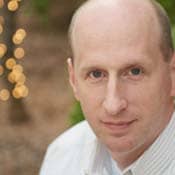 Google the phrase "the wrong side of history," and you'll see an avalanche of examples of recent political rhetoric. Opponents of Don't Ask, Don't Tell repeal are allegedly on the wrong side of history—as are opponents of Obamacare, and of same-sex marriage. The phrase is powerful, conjuring up a sense of inevitability at the same time that it not-so-subtly implies that those on the "wrong side" will one day be viewed as the Bull Connors of our time.
Google the phrase "the wrong side of history," and you'll see an avalanche of examples of recent political rhetoric. Opponents of Don't Ask, Don't Tell repeal are allegedly on the wrong side of history—as are opponents of Obamacare, and of same-sex marriage. The phrase is powerful, conjuring up a sense of inevitability at the same time that it not-so-subtly implies that those on the "wrong side" will one day be viewed as the Bull Connors of our time.
As a general rule, I think the phrase—vaguely Marxist in its concept of history as uni-directional—is near-complete garbage. History has trends, to be sure, but history doesn't have a "side." Looking at the sweep of millennia, we see literacy wax and wane, the rule of law wax and wane, and religious faith wax and wane. Even the march of science and technology can be reversed. In the 200 or so years of Pax Romana, could anyone imagine the Dark Ages that would descend centuries later?
But when there are trends, they do have power. And right now there is a discernible and significant historical trend in the United States, and it's not the trend the Left seeks. Abortion is on the retreat.
The larger numbers are by now familiar: In 2009, Gallup recorded a "pro-life" majority for the first time in the then-fourteen year history of their poll. The rate of abortion, after skyrocketing in the late 1970s, has decreased significantly. As a further measure of public sentiment, abortion restrictions are far more likely to pass state legislatures (and Congress) than are expansions in access. Even pop culture is littered with notable examples of the "choose life" mindset.
But there's something else, something beyond the numbers, that tells me we're quite possibly on the cusp of historic change. Within the Christian community, young people who are ambivalent about other hot-button cultural issues (like same-sex marriage) are often proving to be far more actively pro-life than their parents. To take one example, Students for Life of America has pulled together a network of student activists that quite simply dwarfs anything that existed during my college days.
As I type this column, I'm also preparing to address 1,700 students at SFLA's annual conference (the Alliance Defense Fund is co-sponsoring the conference), and the energy and hope in those young faces inspires me more than anything else I do each year. Twenty years ago, I started (along with two friends), the Society for Law, Life, and Religion at Harvard Law School, and proceeded to immediately receive vitriolic hate mail. We were tiny, on the defensive, and soon-to-be demoralized by the Supreme Court's disastrous decision in Planned Parenthood v. Casey. Since those humble beginnings, SLLR (what an unfortunate acronym) has grown, with no help from its founders, far beyond its humble beginnings and has even played a role in recent Supreme Court cases.
As the public grows more pro-life, it is increasingly intolerant of the abortion lobby. Just last week, Vanderbilt University, one of the largest recipients of HHS funds in the country, was forced to retreat from requiring applicants to a nurse residency program to sign a pledge that they would care for women "undergoing termination of pregnancy." Two pro-life nursing students approached the Alliance Defense Fund complaining about the abortion pledge, and the University backed down literally the day after we filed complaints with the HHS Office for Civil Rights.





